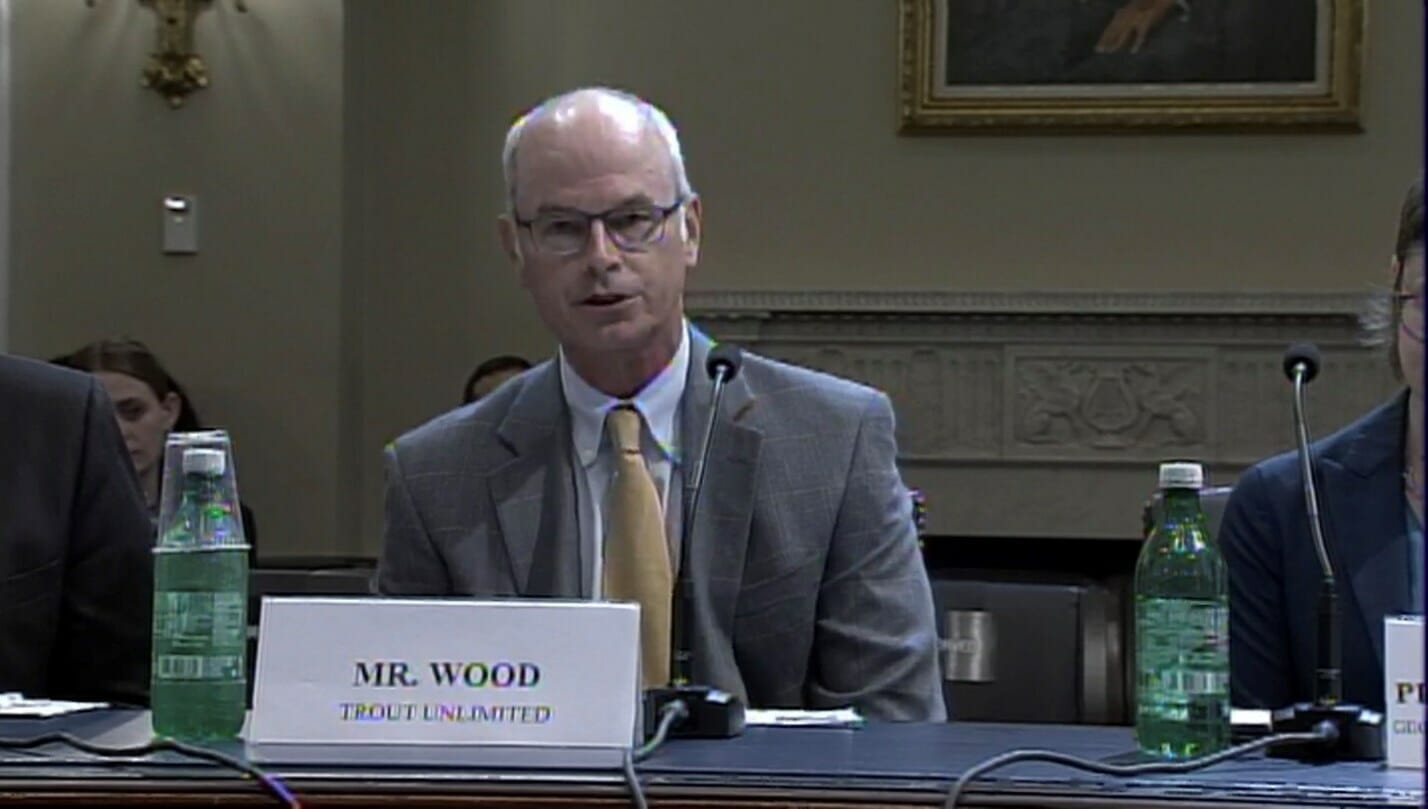Trout Unlimited CEO Chris Wood testifies in favor of community reclamation legislation to facilitate abandoned mine cleanup.
This week, Trout Unlimited President and CEO Chris Wood testified in favor of the proposed Community Reclamation Partnerships Act to facilitate cleanup of abandoned mines by community reclaimers, also known as “Good Samaritans,” in the Mining and Natural Resources Subcommittee of the House Committee on Natural Resources.
“TU stands ready to expand our work to clean up mine pollution, but we need passage of legislation such as the Community Reclamation Partnership Act to make it happen,” Wood testified.
More than 10,000 miles of streams are impacted by abandoned coal mine pollution just in Pennsylvania and West Virginia. The scale of abandoned mine pollution exceeds the amount of funding available for their cleanup through the Abandoned Mine Laws Fund (AML Fund) and the vast majority of abandoned mines wouldn’t qualify for Superfund cleanup.
Good Samaritan entities – nonprofit and local reclamation agencies including TU and its local chapters – have used Pennsylvania Good Samaritan policy to complete more than 250 abandoned mine cleanup projects, modeling what could be expanded.
However, the Clean Water Act blocks expansion of this important work because it treats reclamation projects as point source discharges requiring a permanent permit. Additionally, it requires Good Samaritan entities to meet 100% of water quality standards through reclamation and subject to liability for failure to meet those standards.
This is impractical because, as Wood explained to the subcommittee, a group like TU could spend a couple hundred thousand dollars building a passive treatment system to catch and filter the abandoned mine runoff and improve stream health to 95% of water quality standards, but it could take millions of dollars more and a permanent permit for discharge to reach 100%, which puts the project out of reach for a nonprofit like TU.
“In short, the law treats those who want to clean up abandoned mines as if they themselves are the polluters,” Wood said.
The proposed Community Reclamation Partnerships Act would provide limited liability to community reclaimers to build passive reclamation systems to improve water quality in streams impacted by abandoned mines without requiring a perpetual discharge permit nor being liable for achieving 100% of water quality standards; in short, not letting the perfect be the enemy of better stream health.
“We need legislation like the Community Reclamation Partnerships Act to help unleash the untapped capacity of would-be Good Samaritan cleanup groups like TU, who are ready and willing to help get this work done,” Wood said.
He also echoed the need for similar Good Samaritan legislation to facilitate the cleanup of the hundreds of thousands of hardrock mines polluting western headwater streams.
“There’s a future where we can make our waters more fishable, swimmable and drinkable and create lots of jobs through reclamation,” proclaimed Wood.



